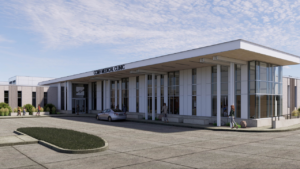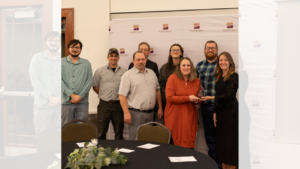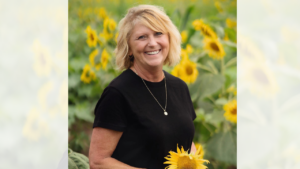Alzheimer’s disease is a growing concern for millions of families worldwide, and raising awareness is key to understanding the challenges it brings. Doug Bickford, Executive Director of the Alzheimer’s Association Iowa Chapter, has been at the forefront of this effort for years.
Doug’s Journey in Nonprofits Doug’s career didn’t begin in healthcare; in fact, he initially pursued a career in sports management, earning a master’s degree in the field. However, he shifted to nonprofit work, drawn by the personal fulfillment it brings. Before joining the Alzheimer’s Association, Doug worked with the Diabetes and Muscular Dystrophy Associations, developing a deep passion for making a difference in people’s lives. “I feel fortunate to do what I do and to meet the families we impact every day,” Doug says.
Understanding Alzheimer’s Disease According to Doug, Alzheimer’s is not a normal part of aging. While it’s common for people to experience some forgetfulness as they grow older—like misplacing keys or forgetting a name—Alzheimer’s is much more serious. Alzheimer’s affects the brain by causing a buildup of amyloid plaque and tau tangles, leading to memory loss that progresses from short-term to long-term. As Doug explains, “It’s when you start putting your keys in the refrigerator or your wallet in the dishwasher that there may be a bigger issue.”
Diagnosing Alzheimer’s is becoming more accurate with advances in science, but it can still be challenging, particularly in rural areas. Doug emphasizes that it’s important for people to understand that memory loss might be part of a larger issue, and early diagnosis can be key to managing the disease’s progression.
Raising Awareness and Support The Alzheimer’s Association plays a crucial role in raising awareness, and one of the primary ways they do so is through community events like the Walk to End Alzheimer’s. These walks bring together people affected by the disease, caregivers, and supporters to raise funds and awareness. “Caregivers, in particular, go through so much,” Doug shared, acknowledging the emotional and physical toll caregiving can take.
With approximately 19 Walk to End Alzheimer’s events across Iowa, the association creates a platform for community engagement, offering support to those affected by the disease and raising much-needed funds for research. These walks are not only a way to raise money but also an opportunity for people to connect, share their stories, and find support in their journeys.
Resources for Families In addition to events, the Alzheimer’s Association offers a variety of resources for families, caregivers, and individuals affected by the disease. They provide 50 sponsored support groups across the state and offer community education sessions, which are free to anyone interested. These sessions cover topics like the 10 warning signs of Alzheimer’s and brain health tips for reducing the risk of dementia.
For families wondering about the next steps when dealing with a loved one showing signs of dementia, Doug strongly encourages visiting a primary care physician and requesting a memory test. He stressed the importance of early diagnosis, explaining that Medicare and Medicaid often cover the cost of these tests for retired individuals.
How You Can Help Aside from participating in the Walk to End Alzheimer’s, there are other ways to get involved and support the cause. Doug highlighted the importance of volunteering and donating to help fund research efforts. Currently, the Alzheimer’s Association is funding over 1,100 research projects across 56 countries, with $1.2 million of that research happening right here in Iowa.
For those seeking more information, the Alzheimer’s Association offers a 24/7 helpline at 1-800-272-3900. This service provides a direct connection to trained professionals who can assist with questions, provide support, and even help in crisis situations. Additionally, their website, www.alz.org/iowa, provides a wealth of resources, from information on upcoming events to educational materials.
Final Thoughts If you or someone you know is affected by Alzheimer’s, don’t hesitate to reach out to the Alzheimer’s Association for support. Whether it’s attending a walk, volunteering, or simply educating yourself about the disease, every effort helps in the ongoing search for a cure.
For more information, visit www.alz.org/iowa or call their 24/7 helpline at 1-800-272-3900. Together, we can make a difference in the lives of those impacted by Alzheimer’s.


